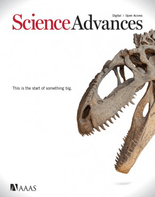
Science Advances
metrics 2024
Connecting Researchers, Inspiring Discoveries
Introduction
Science Advances, published by the American Association for the Advancement of Science, is a leading open-access journal in the field of multidisciplinary sciences. Since its inception in 2015, it has rapidly gained prominence, achieving a remarkable Q1 ranking in both Medicine (miscellaneous) and Multidisciplinary categories, underlining its impact and relevance in contemporary research. With an impressive Scopus ranking of #7 out of 171 in the Multidisciplinary field, it proudly sits in the 96th percentile, showcasing its dedication to disseminating high-quality research across various scientific domains. This journal not only provides open access to innovative findings but also aims to foster collaboration and maintain a high standard of scholarly communication among researchers, professionals, and students globally. Stay updated with some of the most groundbreaking advancements and contribute to the collective pursuit of scientific knowledge through Science Advances.
Metrics 2024
 4.48
4.48 11.70
11.70 13.70
13.70 252
252Metrics History
Rank 2024
Scopus
IF (Web Of Science)
JCI (Web Of Science)
Quartile History
Similar Journals
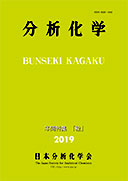
BUNSEKI KAGAKU
Exploring the Depths of Analytical TechniquesBUNSEKI KAGAKU, published by the Japan Society Analytical Chemistry, is a reputable journal dedicated to the field of analytical chemistry. With an ISSN of 0525-1931, this journal has been a crucial outlet for scholarly communication since its inception in 1952, converging its publication years from 1954 to 1957 and from 1959 to 2024. Although it holds a Q4 category ranking in the most recent 2023 quartiles of analytical chemistry and ranks 153/156 in Scopus, it continues to serve as a platform for quality research, fostering advancements in the field. BUNSEKI KAGAKU is based in Tokyo, Japan, and emphasizes the critical importance of analytical techniques in scientific inquiry. With a commitment to professionalism and rigor, the journal provides a vital resource for researchers, students, and professionals seeking to explore innovative methodologies and contribute to the ongoing dialogue in analytical chemistry.
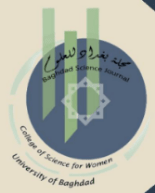
Baghdad Science Journal
Championing Open Access for Scientific ExcellenceThe Baghdad Science Journal (ISSN: 2078-8665, E-ISSN: 2411-7986), published by the COLL SCIENCE WOMEN, UNIVERSITY OF BAGHDAD, is a pivotal peer-reviewed open-access journal dedicated to a diverse array of scientific disciplines. Since its inception in 2004, it has established itself as a leading platform for disseminating innovative research in areas including Agricultural and Biological Sciences, Biochemistry, Genetics and Molecular Biology, Chemistry, Computer Science, Mathematics, and Physics. The journal has consistently achieved commendable rankings in the Scopus database, reflecting its commitment to quality and relevance in academic research. With a Q2 classification in Agricultural and Biological Sciences and Q3 classifications in several other categories as of 2023, the journal has become an invaluable resource for researchers, professionals, and students eager to contribute to scientific advancement. Based in Iraq, the Baghdad Science Journal serves as a bridge for global scientific communication, encouraging collaboration and providing access to groundbreaking discoveries.
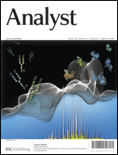
ANALYST
Illuminating Insights in Analytical and Environmental ChemistryANALYST, published by the Royal Society of Chemistry, stands as a prestigious journal in the fields of Analytical Chemistry, Biochemistry, Electrochemistry, Environmental Chemistry, and Spectroscopy. Esteemed for its rigorous peer-review process and influential contributions to the advancement of scientific knowledge, the journal has been a vital resource for researchers and professionals since its inception in 1876. With an impressive Scopus ranking that places it in the top quartile for several chemical disciplines, it specifically ranks #12 in Spectroscopy and #31 in Analytical Chemistry, reflecting its robustness and relevance in the analytical sciences. Though currently not an Open Access publication, ANALYST provides valuable insights and cutting-edge research that help drive innovation and discovery in various scientific realms. Researchers and students alike will benefit from its commitment to disseminating high-quality research that addresses contemporary challenges and promotes interdisciplinary collaboration.

LCGC North America
Inspiring Progress in Analytical Chemistry Since 1999LCGC North America is a pivotal resource in the field of Analytical Chemistry, published by MJH Life Sciences. Since its inception in 1999, the journal has strived to bridge the gap between scientific research and practical applications, catering to a diverse audience that includes researchers, professionals, and students interested in chromatography and related analytical practices. Although currently categorized in the Q4 quartile of Analytical Chemistry, with a Scopus rank of #137 out of 156, LCGC North America is dedicated to delivering insightful articles that foster discussion and innovation within the analytical chemistry community. With a commitment to quality content, the journal covers a broad spectrum of topics, ensuring that readers remain informed about the latest developments and trends in the field. Despite its non-open access model, readers can access its valuable resources through institutional subscriptions and various library networks, making it a vital asset for those engaged in cutting-edge research and practice. Located in Cranbury, NJ, United States, LCGC North America continues to contribute significantly to the advancement of analytical methodologies and technologies.

Brazilian Journal of Analytical Chemistry
Catalyzing Collaboration in Analytical ChemistryBrazilian Journal of Analytical Chemistry, published by VISAO FOKKA COMMUNICATION AGENCY, serves as a vital platform for those engaged in the field of analytical chemistry, especially within the Latin American context. With an ISSN of 2179-3425 and an E-ISSN of 2179-3433, this journal aims to promote high-quality research and advancements in analytical methodologies, instrumentation, and applications spanning from 2010 to the present. Although it currently holds a Q4 rank in Analytical Chemistry by Scopus and is placed at the 24th percentile, its commitment to open access publishing provides invaluable opportunities for widespread dissemination of knowledge, catering to researchers, professionals, and students alike. The journal's editorial board comprises emerging and established experts aiming to bridge gaps in analytical chemistry research, particularly in a Brazilian and broader South American context. Situated in São Paulo, Brazil, the journal's role in fostering innovation and collaboration in analytical techniques makes it an essential resource for the academic community.
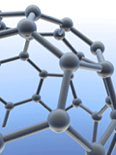
Annual Review of Analytical Chemistry
Advancing the Frontiers of Analytical ChemistryAnnual Review of Analytical Chemistry, published by Annual Reviews, is a premier journal that serves as a critical resource in the field of analytical chemistry, providing comprehensive and cutting-edge reviews that synthesize recent advancements and pivotal research findings. With an impressive impact factor and ranked Q1 in both Analytical Chemistry and Miscellaneous Medicine, it stands as a leader in disseminating knowledge that spans the intricacies of chemical analysis, enhancing the scientific discourse within the community. Available in both print (ISSN: 1936-1327) and online (E-ISSN: 1936-1335), the journal is accessible to a wide audience, fostering innovation and collaboration among researchers, professionals, and students alike. Its scope includes the converged years from 2008 to 2024, showcasing its commitment to providing relevant and timely insights that impact practice and education in analytical techniques, methodologies, and applications. The Scopus rank of #6 out of 156 in Analytical Chemistry, placing it in the 96th percentile, underscores its significance and the high regard in which it is held. As you explore the journal's offerings, you will find a wealth of knowledge that not only informs but inspires future discoveries in the realm of analytical chemistry.
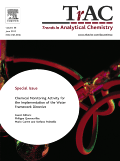
TRAC-TRENDS IN ANALYTICAL CHEMISTRY
Unveiling Trends that Shape the Future of ChemistryTRAC - Trends in Analytical Chemistry is a prestigious journal published by Elsevier Science Ltd, situated in the Netherlands. With an impressive impact factor reflected in its Q1 rankings across three major categories—Analytical Chemistry, Environmental Chemistry, and Spectroscopy—this journal stands at the forefront of disseminating pioneering research and advancements in the field of analytical chemistry. Established in 1981, TRAC provides a comprehensive platform for researchers to share influential studies and insights related to the latest trends, methodologies, and technologies in analytical techniques. Recognized globally, the journal excels in fostering cross-disciplinary dialogue and innovation, making it an indispensable resource for academics, professionals, and students alike. Explore the latest issues to stay abreast of cutting-edge developments that shape the analytical sciences.

Food Analytical Methods
Elevating food science through innovative analytical insights.Food Analytical Methods, published by Springer, is an esteemed journal dedicated to the innovative field of analytical methodologies within the food sciences. With an ISSN of 1936-9751 and E-ISSN of 1936-976X, this journal serves as a pivotal platform for researchers and professionals to exchange insights, methodologies, and findings related to food quality analysis, safety measures, and innovative technologies in food science. As of 2023, Food Analytical Methods boasts impressive Scopus rankings, including Q2 in Analytical Chemistry and Food Science, positioning it among the top journals in its category. The journal's commitment to enhancing food safety and quality through rigorous research underscores its importance in both academic and industrial applications. Although it does not currently operate under an open-access model, it provides exceptional value through its rigorous peer-review process and comprehensive publication standards, further inviting contributions from both established and emerging scientists in the field. With coverage spanning from 2008 to 2024, this journal continues to address critical research areas, thereby shaping the future of food analytics.

Analytical Science and Technology
Pioneering research that shapes the landscape of analytical science.Analytical Science and Technology is a prominent journal dedicated to advancing the fields of analytical chemistry and technology, published by the Korean Society for Analytical Science. Based in South Korea, this journal serves as a vital platform for researchers, professionals, and students committed to exploring innovative analytical techniques and methodologies. Although it is classified under Q4 in various subject categories, including Agronomy and Crop Science, Environmental Chemistry, and Pharmacology, the journal aims to provide critical insights and contributions to the scientific community. With ISSN 1225-0163 and E-ISSN 2288-8985, it spans a converged timeline from 2019 to 2024. Despite its current standings in Scopus rankings, the journal is dedicated to improving its visibility and impact through rigorous peer review and high-quality publications, fostering knowledge sharing within its diverse academic fields. Researchers looking for a reliable outlet for their findings are encouraged to consider this journal as it continues to strive for excellence in analytical science.

Journal of Mass Spectrometry and Advances in the Clinical Lab
Transforming Clinical Labs with Innovative Spectroscopy SolutionsJournal of Mass Spectrometry and Advances in the Clinical Lab, published by Elsevier, serves as a premier resource within the fields of clinical biochemistry, medical laboratory technology, microbiology, and spectroscopy. Launched in 2021 with an Open Access model, this journal enhances the accessibility of innovative research, making it an ideal platform for researchers, practitioners, and students alike. With an impressive impact factor reflected in its quartile rankings—Q2 in Clinical Biochemistry and Microbiology, and Q1 in Medical Laboratory Technology and Spectroscopy—this journal ensures high visibility and credibility. The journal's diverse indexing and significant standings in Scopus rankings highlight its commitment to advancing knowledge and fostering collaboration among professionals in laboratory sciences. Endorsed by a robust editorial board comprising leading experts, the journal aims to disseminate cutting-edge findings and methodologies, contributing to significant advancements in clinical and scientific laboratory practices. By bridging theoretical frameworks and practical applications, this journal plays a crucial role in the continuous evolution of laboratory technologies, thereby empowering readers to push the boundaries of research and innovation in their fields.